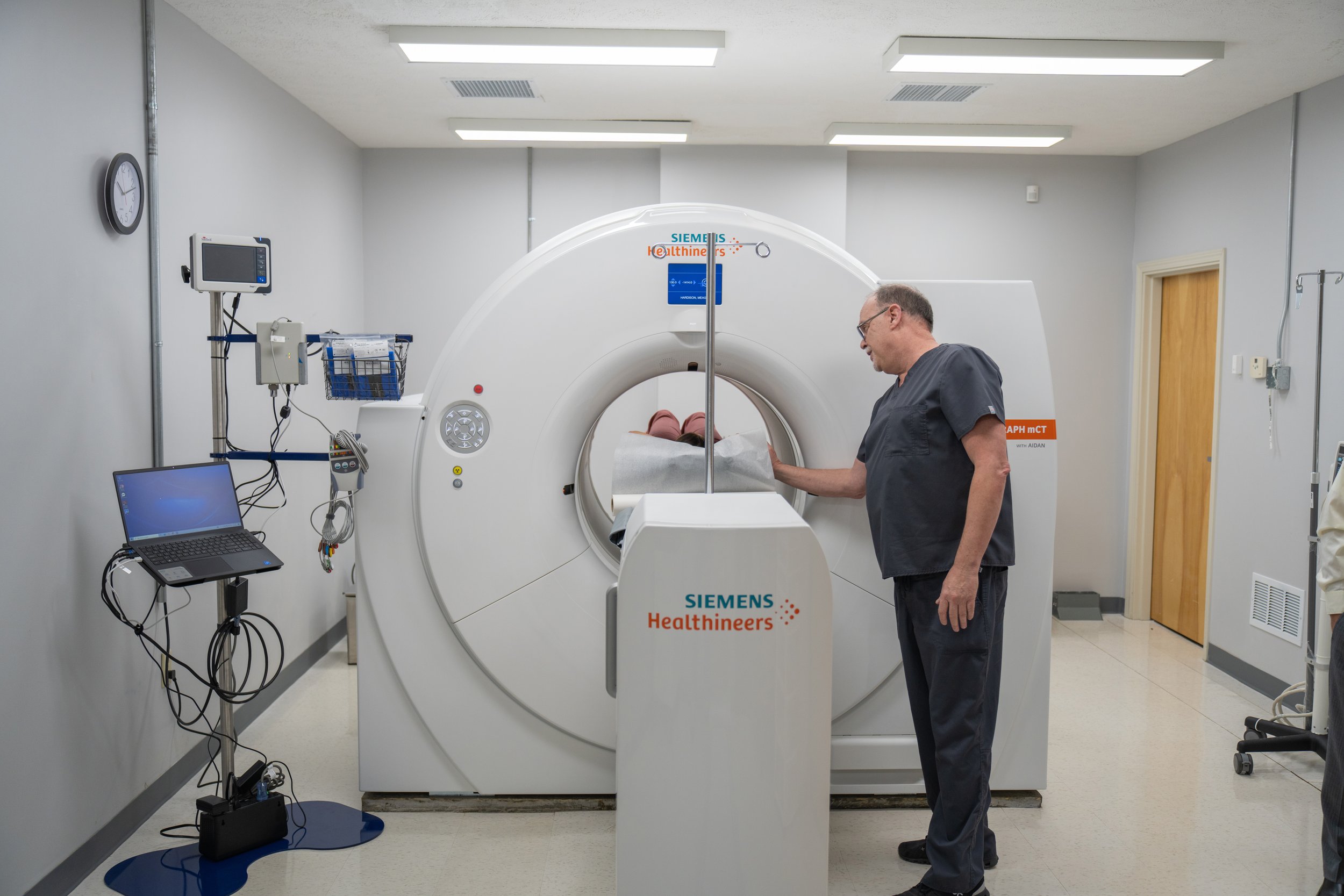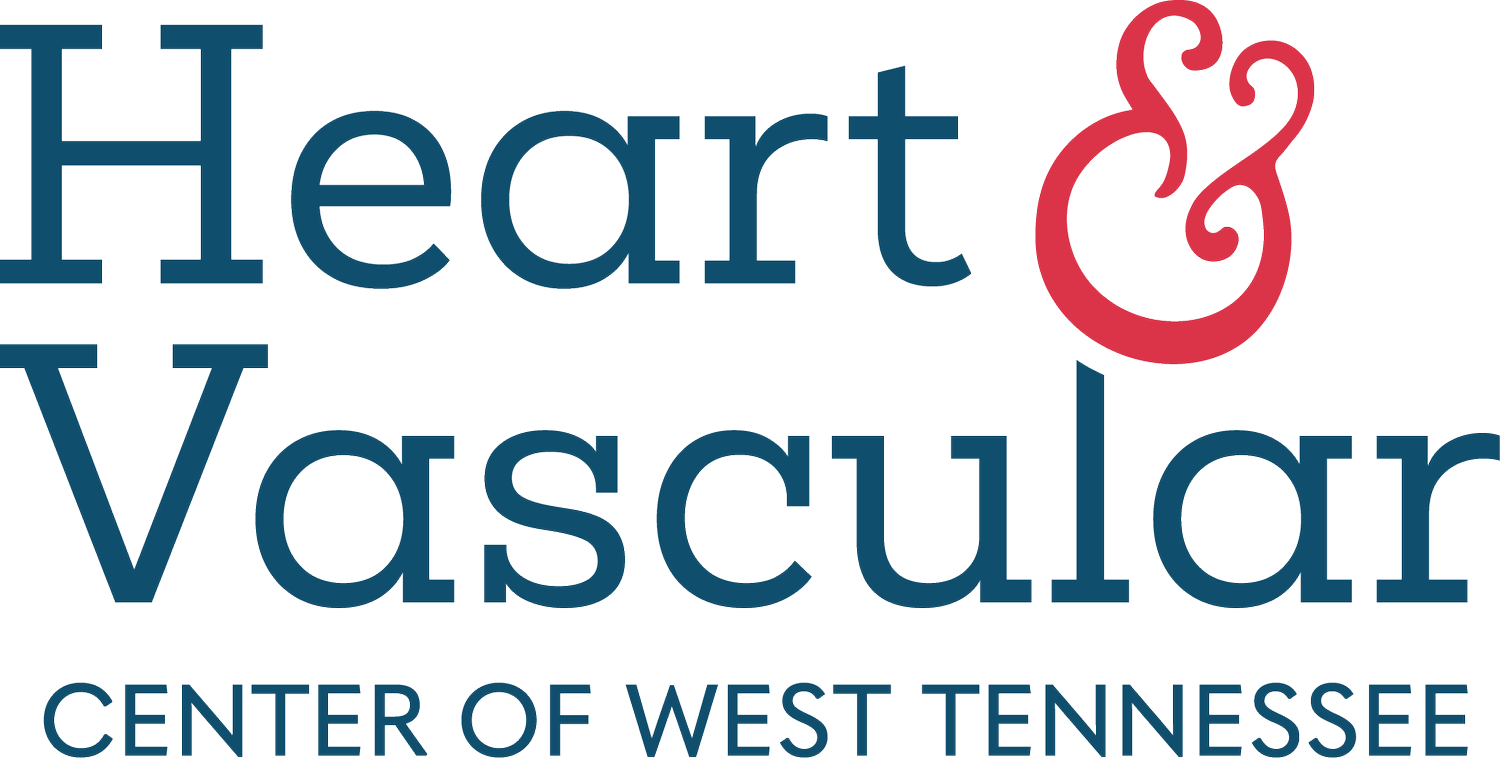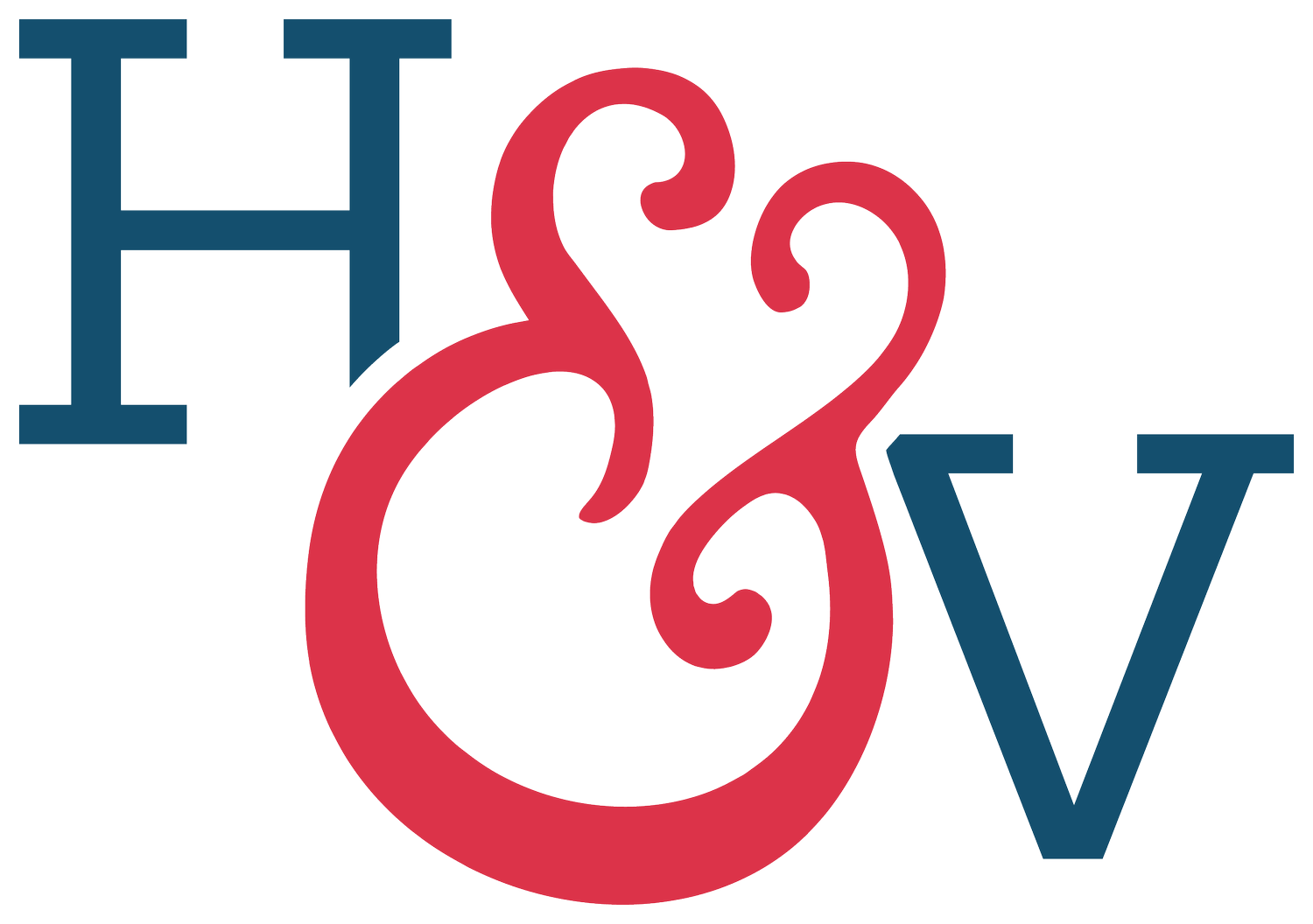
Cardiac PET/CT Scan
Heart and Vascular Center Offers the First Cardiac PET/CT Stress Imaging in West Tennessee
What is a Cardiac PET/CT Scan?
A Cardiac PET/CT scan, also known as Cardiac Positron Emission Tomography/Computed Tomography, is a non-invasive, highly effective imaging tool used to diagnose cardiac disease with higher accuracy by evaluating the blood flow and function of your heart. With lower radiation exposure than traditional stress testing, PET/CT imaging provides diagnostic accuracy, excellent quality, and the ability to detect disease before symptoms are present. This type of scan is typically recommended for individuals with certain cardiac conditions or risk factors.
Why Get a Cardiac PET/CT Scan?
Evaluation of Coronary Artery Disease (CAD). Symptoms of CAD include chest pain (angina), shortness of breath, or unexplained fatigue. Cardiac PET/CT can detect areas of reduced blood flow or blockages, allowing your doctor to plan appropriate treatments.
If you have been diagnosed with CAD or other heart conditions, a Cardiac PET/CT exam can help your healthcare team to make informed decisions about your treatment options.
After a heart attack or other cardiac events, heart tissue may be damaged but still viable. A Cardiac PET/CT can assess whether damaged tissue can be recovered with treatment.
Cardiac PET/CT can evaluate how well your heart is pumping blood and identify areas of the heart with reduced function.
If you have already undergone heart procedures or surgeries, such as angioplasty or coronary artery bypass grafting (CABG), this exam can help monitor the success of these interventions and identify any potential complications.
For Individuals with risk factors for heart disease, such as diabetes, hypertension, or a family history of heart problems.
Cardiac PET/CT benefits patients with mobility issues who may struggle to move during a longer imaging session.
Advantages of Cardiac PET/CT Scan
Higher Resolution and Sensitivity - Cardiac PET/CT provides higher-resolution images and is more sensitive than SPECT. This means it can detect smaller abnormalities and subtle changes in blood flow, making it potentially more accurate in certain cases.
Better Quantification - Cardiac PET/CT allows for more precise quantification of blood flow and metabolic processes, which can be essential for assessing myocardial viability and identifying areas at risk of ischemia.
Shorter Imaging Time - Cardiac PET/CT scans usually require less time (30-45 min) for imaging compared to SPECT (3-4 hrs), leading to shorter examination times for patients.
Less Radiation Exposure - Cardiac PET/CT imaging often involves a lower radiation dose than SPECT, which may be beneficial, especially for patients who need multiple scans or those with radiation sensitivity.
How to Prepare
Follow the instructions that are provided by Heart and Vascular Center of West Tennessee to successfully prepare you for your scan.
Remember, no caffeine for 36 hours before your test, and do not eat 6 hours before your test.
What to Expect
Most cardiac PET/CT exams take less than one hour; however, a longer exam should not be cause for concern. Upon arrival, our team will ask questions about your medical history; please report all medications you are taking.
Trained medical personnel will be with you throughout your exam. An intravenous line will be placed in a vein in your arm to allow medication administration during the exam.
Small pads called electrodes will be placed on your chest to monitor your heart's electrical activity throughout the study. Your blood pressure, heart rate, and electrocardiogram are monitored before, during, and after the test.
You will be asked to lie down on a padded, comfortable scanning table developed especially for the PET/CT camera. During your PET/CT scan, the majority of your body is outside the scanner; this is not a full-body scan like an MRI. If you're claustrophobic, please call our office at 731-512-0104.
A small amount of radiopharmaceutical is given through your intravenous line, enabling the PET/CT camera to capture images of your heart. The camera will take pictures of your heart in two phases, a resting and a stress phase.
In most cases, you may leave as soon as your cardiac PET/CT MPI study is complete. You will be able to eat, drink, and return to your normal daily activities.
Scan Results
Our physicians who have specific expertise in stress testing and imaging will receive a report detailing the findings of your scan. Heart and Vascular Center of West Tennessee will follow up with you in the upcoming days with your scan results.
To find out more about PET/CT scans or how you can receive a scan, contact Heart & Vascular Center of West Tennessee today. Available only at Delta Clinic-Heart & Vascular Center.



